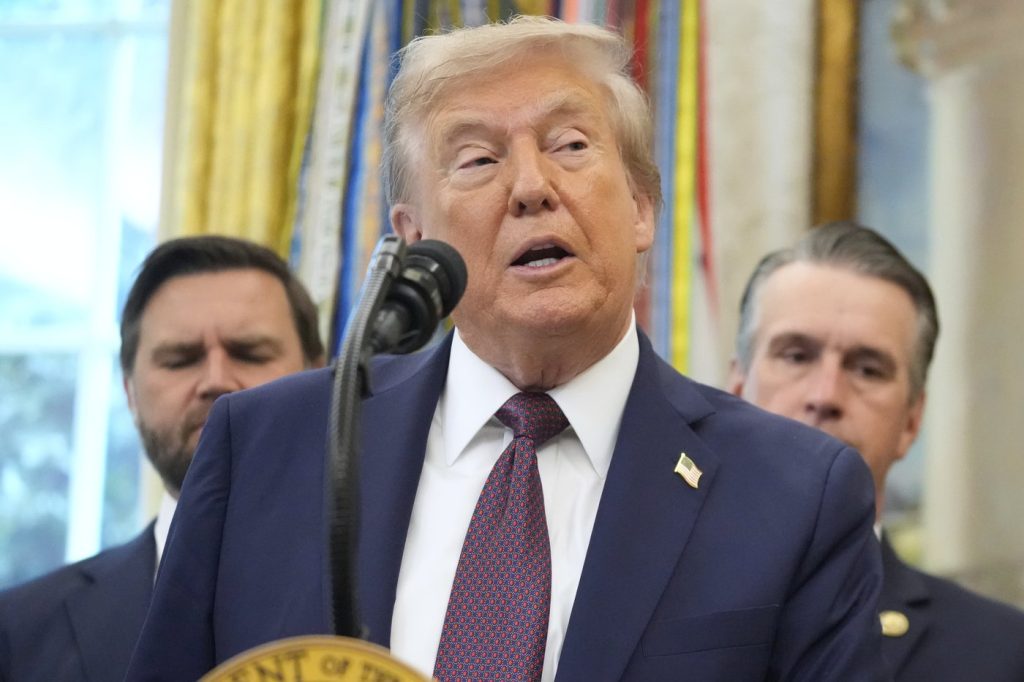Poland's newly inaugurated president, Karol Nawrocki, is scheduled to visit the White House on Wednesday as part of his effort to solidify a partnership with President Donald Trump. This visit marks Nawrocki's first overseas trip since taking office last month, following Trump’s unusual endorsement during Poland's recent elections. Nawrocki, the candidate from the right-wing Law and Justice party, aims to reinforce the U.S. military presence in Poland at a critical juncture for the country amid rising tensions in Eastern Europe.
Trump's administration has been grappling with the ongoing conflict involving Ukraine and Russia, where Polish concerns have intensified. Despite Trump's previous meetings with both Russian President Vladimir Putin and Ukrainian President Volodymyr Zelenskyy, hopes for direct negotiations to resolve the three-year conflict have diminished. Trump expressed frustration during an interview, suggesting that the fighting may need to extend longer, with remarks focusing on the absurdity of ongoing hostilities.
The context of Nawrocki’s visit is underscored by the unease within Poland and the broader European arena regarding the future of U.S. military support. Trump has faced calls to reallocate U.S. military resources from Europe to confront challenges posed by China in the Indo-Pacific. Currently, about 10,000 American troops serve in Poland on a rotational basis, and any indication of reduced presence could signal a shift in American strategic priorities.
Analysts, including Peter Doran from the Foundation for the Defense of Democracies, emphasize that the stakes are significantly high for Nawrocki's meeting with Trump. Success in their discussions may enhance Poland's standing as a crucial U.S. ally, whereas failure could result in a diminished American force posture in the region. Indeed, Trump had previously indicated that stronger military ties could follow Nawrocki’s election, which ultimately saw him narrowly defeat liberal candidate Rafal Trzaskowski.
Nawrocki, who has a background as an amateur boxer and historian, shares some of Trump's sentiments regarding the situation in Ukraine, pledging continued support for the country. However, he has also been critical of Zelenskyy, claiming the Ukrainian leader exploits Western allies and has taken a firm stance concerning the prioritization of Polish citizens over Ukrainian refugees in access to social services.
During the meeting, Nawrocki aims to convey the seriousness of Russian aggression, arguing the necessity of a solid U.S. deterrent presence in Poland. Heather Conley, a senior fellow at the American Enterprise Institute, notes the message Nawrocki hopes to drive home: Putin’s ambitions could extend beyond Ukraine, necessitating robust American support to safeguard Poland and its NATO allies. This context is further complicated by Russian military exercises planned in Belarus, raising alarms among NATO members.
The meeting between Trump and Nawrocki represents a critical opportunity for both leaders to assess their partnership's future, especially given the current geopolitical climate. As both Poland and the United States navigate the complexities of their relationship, Nawrocki's visit could set the tone for future diplomatic and military engagements between the two nations in a region increasingly apprehensive of Russian maneuvers.










